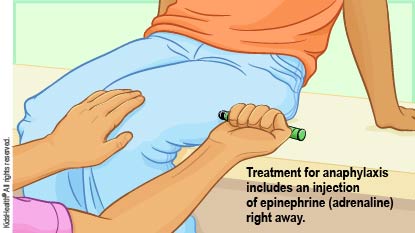Find a Provider
From well-child visits to specialized treatment of complex illnesses and injuries, we offer comprehensive care from an exceptional team of doctors, nurses and allied professionals.
- Parents Home
- Para Padres
- A to Z Dictionary
- Allergy Center
- Asthma
- Cancer
- Diabetes
- Diseases & Conditions
- Doctors & Hospitals
- Emotions & Behavior
- First Aid & Safety
- Flu (Influenza)
- Food Allergies
- General Health
- Growth & Development
- Heart Health & Conditions
- Homework Help Center
- Infections
- Newborn Care
- Nutrition & Fitness
- Play & Learn
- Pregnancy Center
- Preventing Premature Birth
- Q&A
- School & Family Life
- Sports Medicine
- Teens Home
- Para Adolescentes
- Asthma
- Be Your Best Self
- Body & Skin Care
- Cancer
- Diabetes
- Diseases & Conditions
- Drugs & Alcohol
- Flu (Influenza)
- Homework Help
- Infections
- Managing Your Weight
- Medical Care 101
- Mental Health
- Nutrition & Fitness
- Q&A
- Safety & First Aid
- School, Jobs, & Friends
- Sexual Health
- Sports Medicine
- Stress & Coping
A to Z: Anaphylaxis
Anaphylaxis is a sudden, life-threatening reaction that is usually caused by an allergy. The most common allergens (things that cause a reaction) are foods, medications, and insect stings.
More to Know
Anaphylaxis does not occur the first time someone comes in contact with an allergen. During the first exposure, the person's immune system, which fights infections and disease, responds to the allergen as if it were a threat. When exposed to the allergen again, the person's body tries to "defend" itself by releasing chemicals into the blood that cause inflammation throughout the body and the severe allergic symptoms known as anaphylaxis.
Common anaphylaxis symptoms are itchy or red skin, swelling, trouble breathing, hoarseness, a runny or stuffed nose, throwing up, a fast heartbeat, or passing out. If someone has anaphylaxis more than once, signs may change each time.
Treatment for anaphylaxis includes an injection of epinephrine (adrenaline) right away. Other medications like prednisone (a steroid) and antihistamines treat the reaction and usually will be continued for a few days. With prompt treatment, an episode usually ends within an hour, but some can last longer. Sometimes symptoms return without another exposure to the allergen, usually within 10 hours but sometimes up to 3 days later.

Keep in Mind
Anaphylaxis can be life threatening, so anyone at risk for it (and all caretakers) should know what to do in an emergency.
- What's the Difference Between a Food Allergy and a Food Intolerance?
- Kids and Allergies
- Bug Bites and Stings
- How to Handle an Allergic Reaction
- Food Allergies
- Peanut Allergy
- 5 Ways to Prepare for an Allergy Emergency
- Going to School With Food Allergies
- Food Allergies (Topic Center)
- Serious Allergic Reactions (Anaphylaxis)
- Insect Sting Allergy

© 1995- The Nemours Foundation. KidsHealth® is a registered trademark of The Nemours Foundation. All rights reserved.
Images sourced by The Nemours Foundation and Getty Images.


